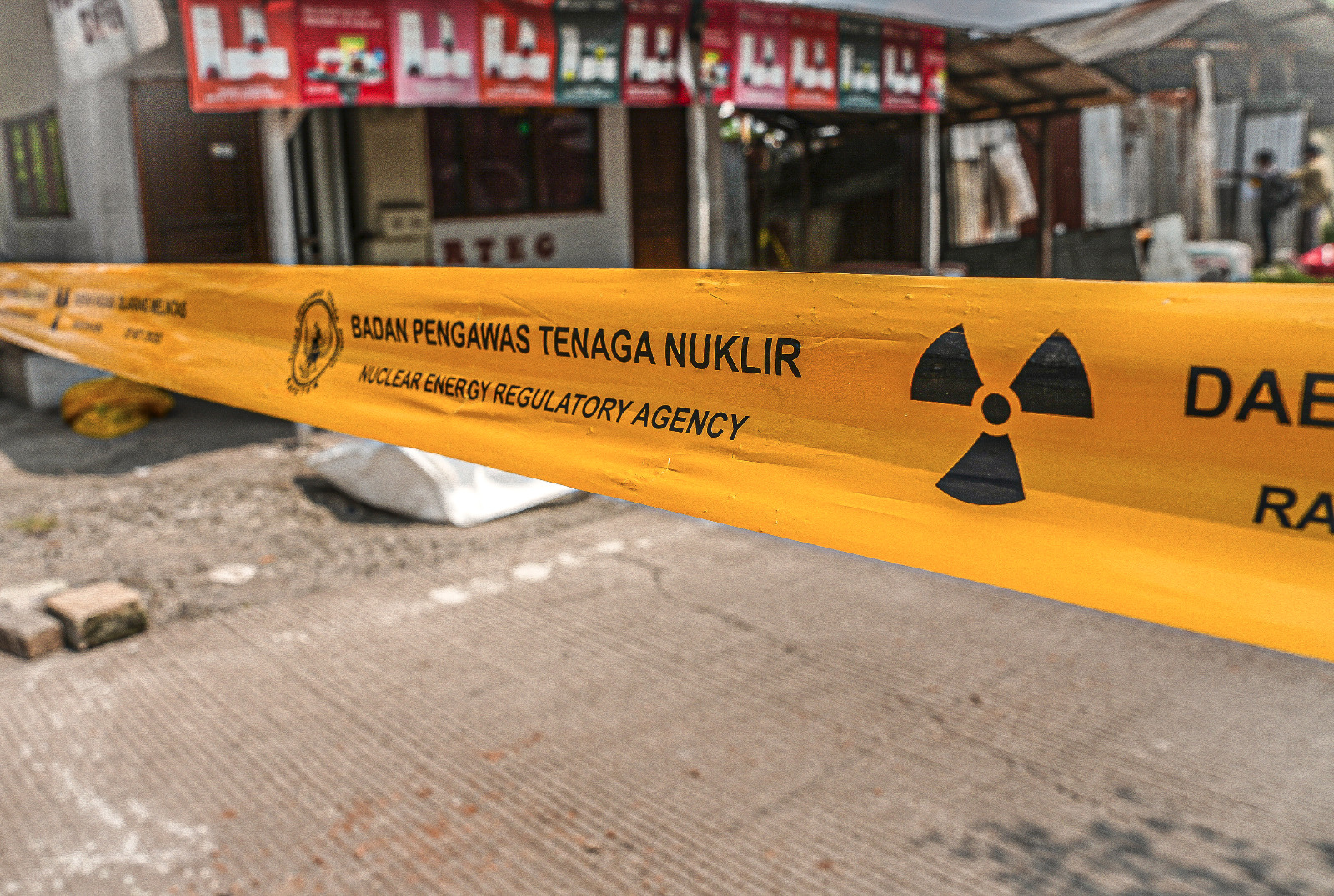The Indonesian Ministry of Industry (Kemenperin) is preparing a new regulation requiring industrial zones and factories to regularly report radiation exposure levels. The policy is part of the government’s broader effort to strengthen public safety and protect investment following the discovery of Cesium-137 (Cs-137) contamination in the Modern Cikande Industrial Estate, Serang, Banten.
Minister of Industry Agus Gumiwang Kartasasmita said the regulation will make it mandatory for industrial zones across Indonesia to submit radiation survey results through the Radiation Portal Monitoring (RPM) system.
“We will issue a regulation that obliges industrial zones and factories in Indonesia to report the results of Radiation Portal Manufacturing surveys,” Agus said after attending the Investor Daily Round Table in Jakarta, Tuesday, as quoted by Antara.
Under the upcoming rule, companies must report their radiation monitoring results every three months through the National Industrial Information System (SIINas). Agus explained that Indonesia already has the necessary technology to measure radiation exposure. Businesses will be allowed either to purchase their own testing equipment or work with third parties for inspections.
“We encourage companies to choose the latter. What matters is that all industrial zones and factories submit radiation survey reports to Kemenperin every three months,” he said.
The regulation is being introduced as a preventive measure following a case of radionuclide Cs-137 exposure at Cikande. Agus emphasized that this policy is also meant to build investor confidence, ensure safety standards, and maintain the reputation of Indonesian exports.
Strengthening Safety Standards Across Industrial Zones
The new regulation represents a major shift in how Indonesia monitors and manages radiation risks in manufacturing areas. By making quarterly radiation reporting mandatory, the government aims to detect potential hazards early, protect public health, and maintain smooth industrial operations without disruptions.
Kemenperin has coordinated with multiple institutions, including the Food Coordinating Ministry, the Nuclear Energy Regulatory Agency (BAPETEN), and local governments, to contain the contamination and monitor affected areas. A special task force has also been formed to address the Cesium-137 hazard and its potential impact on public health.
In a press release on Monday (October 13, 2025), Agus stressed the importance of a scientific and transparent approach to handling radiation incidents.
“This radiation issue must be addressed swiftly, scientifically, and transparently to avoid undermining public trust in domestic manufacturing. We are committed to ensuring that all industrial activities in Indonesia comply with public safety, environmental, and health standards,” Agus underscored.
He confirmed that no evidence has been found of radiation affecting the supply chain or product quality at the Cikande estate.
“Indonesian manufactured products remain safe and meet international quality standards. Kemenperin conducts regular quality inspections and certifications through industrial standardization agencies,” Agus added.
Safeguarding Investor Confidence and Export Reputation
Beyond immediate safety concerns, the policy also targets long-term economic stability. Transparent radiation monitoring is expected to strengthen Indonesia’s reputation in global markets, reassuring foreign investors and trading partners that industrial zones comply with international safety and environmental standards.
The Modern Cikande Industrial Estate, established in 1991 and managed by PT Modern Industrial Estate, spans 1,463 hectares and hosts 271 tenants, including 181 active companies employing over 45,000 workers. It is one of Banten Province’s key industrial hubs.
To reinforce environmental governance, Kemenperin is drafting new guidelines on industrial environmental management, integrating monitoring systems between industrial estate managers, local governments, and technical ministries. The ministry is also accelerating the construction of a centralized wastewater treatment plant (IPAL) in Cikande, scheduled to operate by late 2026.
Agus reaffirmed the government’s commitment to maintaining a safe and investment-friendly environment for industrial operations.
“We guarantee that Indonesia’s industrial zones, including Cikande, will remain safe and competitive for investors. This issue serves as momentum to strengthen our industrial safety management and environmental governance systems,” he said.
Director General of Industrial Resilience, Regional Access, and International Industrial Access (KPAII), Tri Supondy, added that industrial estate managers must follow environmental supervision and spatial regulations.
“Strengthening governance is not just about compliance but also about maintaining investor trust and ensuring the sustainability of Indonesia’s industrial ecosystem,” Tri said, as quoted by Kontan.
Source: Antara, Kontan, Jurnal Industry, Indonesia Satu
Photo Credit: kemenlh.go.id


